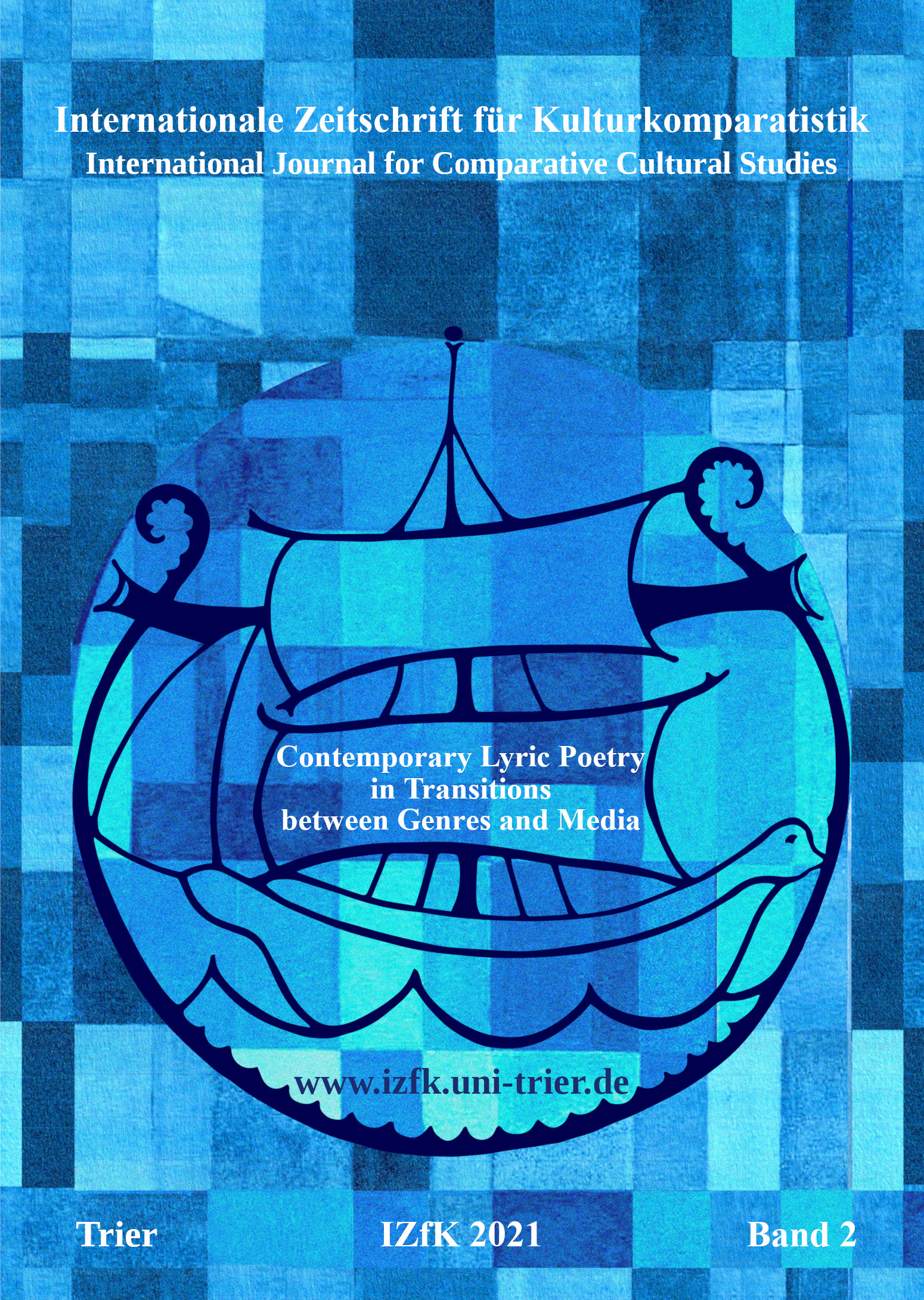A Gap in(to) the Dictionary: The In-between Lyric of Tawada Yōko
Hauptsächlicher Artikelinhalt
Abstract
The work of Japanese-German writer Yoko Tawada (Tawada Yōko) stands out as an example of ‘in-between’ writing. Instead of simply ‘translating’ Japanese into German and vice versa, Tawada blends both languages and cultures, often self reflexively. As a result, poetic in-between spaces emerge, in which creative work, cultural translation, and social criticism can take place. The texts also construct in between spaces on a formal level. For instance, the verse novels “Kasa no shitai to watashi no tsuma” (『傘の死体とわたしの妻』, 2006) and “Ein Balkonplatz für flüchtige Abende” (2016) feature both narrative progression and poetic devices (vivid imagery, association, and wordplay), defying categorization either as volumes of poetry or as novels. In addition, the in-between space of genres becomes visible in Tawada’s self-translations, which often amount to rewritings and lead to a change in genre – travel essay to novella, novel to drama, or poem to prose text. An example of this genre-transcending bilingualism as entryway to an in-between space are the texts „Die Orangerie“ (1997) and “Orenji-en nite” (「オレンジ園にて」, 1997/1998), which initially appear as a poem and its (apparently) prose translation. However, a number of textual peculiarities of both pieces point to the mutual influences between versions. Thus, I read all four examples as hybrid forms of poetry, which perform the mixing of genres, languages, and cultures that occurs in today’s world. In their cultural hybridity especially, the poems point to underlying social issues of homo- and xenophobia.

